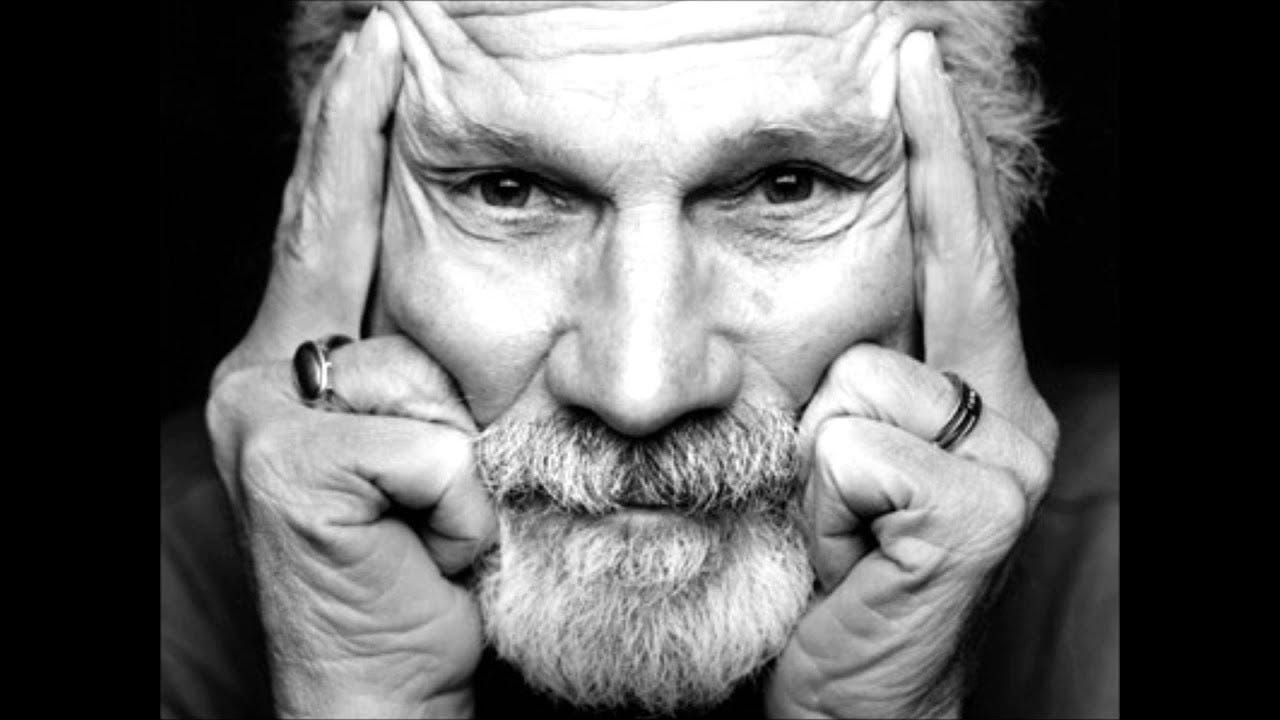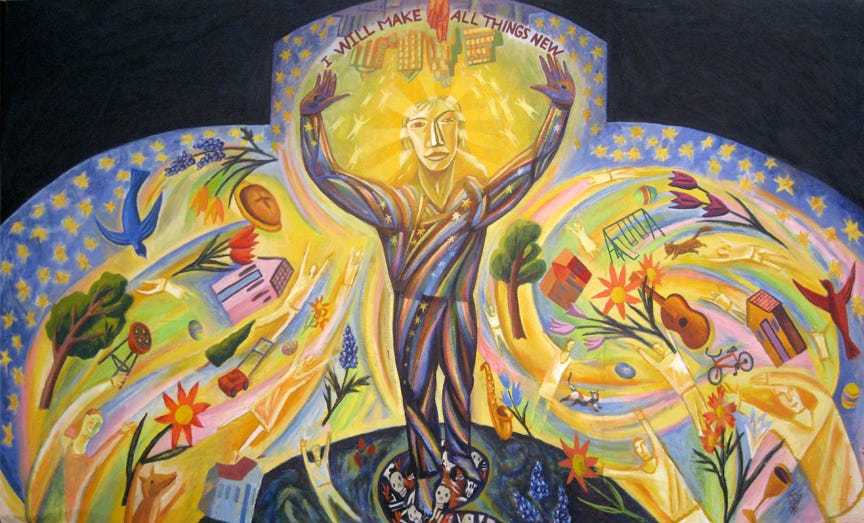November 6, 2022 - All Saints Sunday
Ephesians 1:11-23
I cannot begin to tell you how good is to see you here this morning. A few weeks ago, we were displaced by a fire in the attic of the northern portion of the building. But just like we did during the beginning of the COVID pandemic, our congregation proved that the church is not limited by the constraints of a building. We, you, continued to gather to study God’s word knowing that no matter the space – in person or over Zoom – God's Word speaks a word of hope and grace to us. We, you, continued to tell our stories as our story, despite a fire, continues to be written.
Back in September, we began to examine the stories we tell in the Church, beginning with the stories told by Jesus; parables.
“The Kingdom of God is like...”
A lost coin.
A shrewd manager.
A mustard seed.
We shifted gears in October to examine God’s stories of generosity and the gracious responses found in our holy scriptures, as well as our Mount Olivet community.

And now, we turn to examine our own stories on this All-Saints’ Sunday.
Close your eyes for a moment and imagine what this congregation was like when the congregation first gathered.
It is the mid-1800's and the congregation was meeting in homes throughout the area. The clergy, according to our records, were like your clergy today: “young and vigorous.”
Just before the Civil War, a building was built at the corner of Glebe Road and Brown’s Bend Road (now known as 16th Street).
During the war, the building was used as a hospital and stable. I know everyone wants their hospital bed next to a horse trough.
After the Civil War, the building was demolished but Mount Olivet helped plant five other congregations; two of which survive today.
The 1920s through the 1960s included the expansion of the building we have today; a steeple and education wings were added.
Physical changes have marked this building but consider the people. Imagine the people who have moved through this space, sat in these pews, and in this room. They gathered here in the unity of Jesus Christ, while division within the community and nation festered. An ever-changing community carrying the message of unity in Jesus, and the love of God into the community.
Sharing with the children of Arlington how much God loves all of them.
Being a place where the barriers that divide are broken down.
Offering sanctuary to all so that the grace of God in Jesus Christ is proclaimed and known by all.
A community, then and now, brought into unity through the faithfulness of God in Jesus Christ.
Paul’s words to the Ephesian church of praise to God before actually addressing the church is a trait of Paul’s writing. Paul was keenly aware that the work of the saints on earth was the result of God’s work within the church. Paul knows, better than most, that God is the One, the Source, of the good works produced by humanity; especially the church.
Paul uses “cosmic” language to highlight the glory of God. God has never been bound by time or space. On the contrary, God is the source of time and space and has always been present, and always will be. Rev. Kara Slade, author, and professor at Princeton Seminary wrote, “The time of Jesus Christ is “not only the time of man, but the time of God, eternal time.” As such, Christ “not only is in time and has time like other men, but He also is Lord of time.”[i]

The cosmic language used by Paul points to the larger work of God in the word.
The Hebrew Bible points to this in the Book of Daniel. King Belshazzar said he “saw in my vision by night the four winds of heaven stirring up the great sea, and four great beasts came up out of the sea, different from one another.”[ii]Daniel responded, “As for these four great beasts, four kings shall arise out of the earth. 18 But the holy ones of the Most High shall receive the kingdom and possess the kingdom forever—forever and ever.”[iii]
And the New Testament confirms the cosmic work of God.
Hebrews 13:8: “Jesus Christ the same yesterday, today, and forever.”
There has never been a time when God has not been deeply invested in the cosmic ordering of creation. And, as members of Christ’s body, citizens of the Kingdom of God, it can be tempting to think that we (or others) must choose sides in the same way the television ads have been trying to convince us ahead of Tuesday’s mid-term election. But the truth is, pointed out by Paul, confirmed in the Gospels, and lived out in the sacraments of the church that in Jesus Christ God has already chosen us.

All Saints’ Sunday is a day to remember that in Jesus Christ God, we have been chosen by God. Before we took our first breath, before we opened a Bible, recited a creed, or received the elements at Christ’s table of grace the amazing grace of God in Jesus Christ was ours; is yours.
Today is a day to remember those who have joined the heavenly banquet prepared and hosted by Christ as His honored guests.
Today is a day to remember that it is Jesus who makes us saints, and thus is a day to remember all the saints in our lives – those we study scripture alongside, those sharing a pew, and those we fail to greet as we move through our daily routines. “Saintliness” is not something we earn or achieve – in this life or the next.
Christian ethicist and professor at Duke Divinity Stanley Hauerwas wrote, “Saints… are people like us who have been made more than we are by being engrafted into God’s Kingdom that is ruled by the power of forgiveness and love. Even though we rightly remember particular Christians’ lives for sustaining our part in God’s adventure, we are mindful that it is God that makes their and our lives possible.[iv]
Close your eyes again.

Image Mount Olivet today – charred in some places, paint peeling in others. Music comes from the organ or electric guitar and people filling the pews of the sanctuary and chairs in the Fellowship Hall.
Children fill classrooms and playgrounds.
Worshippers arrive on Sunday morning for worship or on a Saturday morning for a memorial service.
The building is just a building but when you arrive, the building becomes a saintly dwelling. You are the saints of the church.
Now, imagine the Mount Olivet that is to come – both what the physical building will become and how this congregation will continue its Kingdom building work; the vocation to which our community is called to. Past, present, and future are all wrapped in the unity of God’s grace.
And while we want to control, guide, and strategize our way into what is to come, the truth is that God is the One at the wheel.
The role of the saints – past, present, and future – is to praise God, soak up God’s amazing grace, and be open to being used as vessels of mercy, grace, and compassion.
Our story, saints of yesterday, day, and tomorrow is wrapped in the unifying salvific work of God in Jesus Christ.
Freedom from sin.
A life shaped by the fullness of God’s grace.
An invitation to “saintliness” today, just as we are, just as you are, because of who we are in Jesus Christ; beloved.
[i] Slade, Kara N. The Fullness of Time: Jesus Christ, Science, and Modernity (p. 54). Cascade Books. Kindle Edition.
[ii][Daniel 7:2-3, NRSV
[iii] Daniel 7:17-18, NRSV
[iv] Hauerwas, Stanley. Unleashing the Scripture: Freeing the Bible rom Captivity to America. Abingdon Press. 1993.







